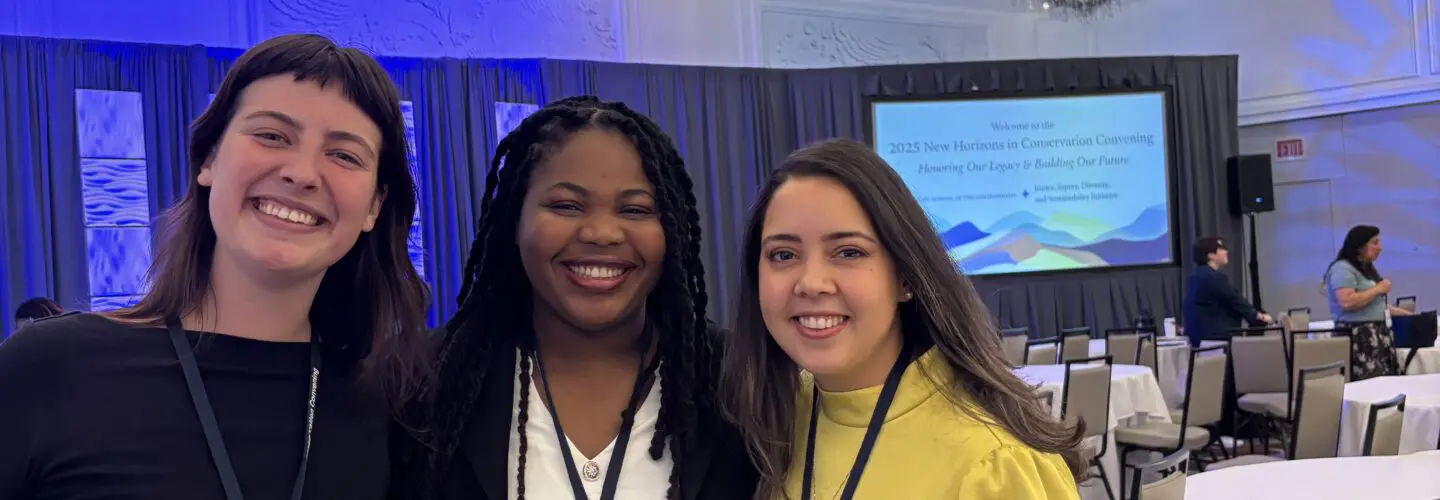Ray of Hope for Diversity and Inclusion in Environmental Careers
Acadia Center will serve as a host organization for a fellow from the Environmental Fellows Program (EFP) this summer, affiliated with Yale University. To kick off the fellowship and internship program, the annual New Horizons conference opens a unique opportunity for mentors and supervisors from host organizations to meet with incoming fellows and interns in their organizations. Acadia Center was represented by two staff members at the conference: myself, Joy Yakie, Environmental Justice and Outreach Manager; and Paola Moncada Tamayo, Senior Policy and Data Analyst. Also present at the conference were alumni of the fellowship program, professionals at different levels of careers in the conservation and environmental sectors, academics, students, vendors, and others. The sessions at the conference offered insights on how mentors could support fellows, as well as peer-to-peer learning opportunities among mentors from host sites.
This year, the New Horizons conference presented an opportunity to take a pulse check on environmental progress in the past year. From keynote presentations, plenary sessions, workshops, and flash talks, speakers delved fully into the progress and challenges of the last few years in environment and conservation. Two of my favorite sessions included a panel session that provided insight on the environmental movement and another session that explored current and future directions of energy policy and practice by looking at the gaps and shortcomings of the previous years and the work that lies ahead. Speakers for both sessions were former top government advisors and current professors in energy, environment, and climate from the University of Michigan School for Environment and Sustainability, the Yale School of Environment, and other institutions.
The Environmental Fellows Program (for master’s and doctoral students) and Yale Conservation Scholars – Early Leadership Initiative (targeted towards undergraduate students) are programs administered through the Justice, Equity, Diversity, and Sustainability (JEDSI) at the Yale School of the Environment. These programs, put in place in 2016, resulted from the support of various foundations to see diversity in the environmental sector following a deep-dive report by Professor Dorceta Taylor in 2014 on the lack of diversity observed in conservation and environmental non-profits, government agencies, and foundations. Today, with diversity in the environmental sector still lacking and its value contested, the New Horizons convening brought a ray of hope by gathering like-minded stakeholders on the importance of diversity in the environment.
Acadia Center believes in diversity, equity, inclusion, and justice (DEIJ), and continues to ensure that those values are incorporated in our programs and organizational objectives. It understands that a climate-safe and clean energy future is only possible when all communities are represented in the planning and decision-making process; hence, Acadia Center’s continued support for diversity and inclusion in the programs that bring about such representation. In addition to hosting a fellow from the Environmental Fellows program, we are also partnering with the Black Girl Environmentalist initiative to support a pipeline of environmental professionals of color. Acadia Center is confident that these initiatives will lead to a more diverse environmental and climate policy arena that fosters equity and inclusion.




















Follow us